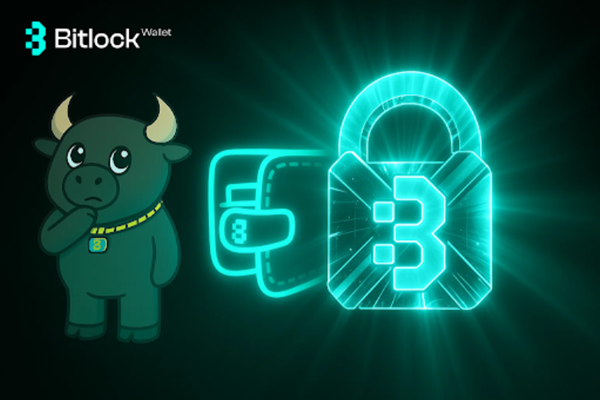Most crypto users still don’t understand the real difference between safe storage and quick access. They keep their assets on exchanges or online wallets and forget that those keys are exposed. One data breach, phishing email, or compromised phone can wipe everything out in seconds that’s why using a crypto wallet cold solution like Bitlock Wallet is essential for real protection.
Every day, hackers exploit users who think convenience equals safety. Centralized wallets often demand KYC, store your data, and control your keys. When that happens, your crypto isn’t truly yours anymore it’s held by someone else who can freeze or lose it.
The solution is simple: combine cold storage principles with non-custodial control. With Bitlock Wallet, you hold your private keys while transactions are signed locally and encrypted on your device. This gives you cold-wallet security with hot-wallet usability, allowing you to swap, trade, and bridge across chains securely without KYC.
What exactly is a cold crypto wallet and how does it differ from a hot wallet?
A cold crypto wallet is a type of wallet that stores your private keys completely offline, making it one of the most secure ways to protect digital assets from hacking or unauthorized access. Unlike hot wallets, which stay connected to the internet for easy access and instant transactions, cold wallets remain isolated from online threats such as malware, phishing attacks, or exchange breaches.
Using a hot wallet means your device stays connected to the internet through a mobile app, browser extension, or exchange account. This setup offers convenience but also increases risk. Once someone breaches your device, they can access your funds instantly.
In contrast, cold wallets are designed for long-term, offline storage. They come in several forms, including hardware wallets, paper wallets, or even non-custodial mobile wallets that can operate without constant internet access. Because the keys never leave your control, hackers cannot reach them remotely. You can read more about this here.
The Bitlock Wallet bridges these two worlds. It functions as a non-custodial wallet, meaning you not the company own your private keys. Every transaction you sign happens locally and securely on your device, keeping sensitive data encrypted and inaccessible to third parties. This setup provides a cold wallet level of safety while still allowing fast swaps, bridges, and DeFi interactions across multiple blockchains.
How does a non-custodial crypto wallet work?
A non-custodial crypto wallet gives you full ownership of your digital assets. Unlike custodial wallets, where a third party (such as an exchange or app provider) holds your private keys, a non-custodial wallet ensures that only you control access to your funds.
When you create a wallet, the app generates a public address and a private key using cryptographic algorithms such as ECDSA and SHA-256. The public address is what others use to send you crypto. The private key, on the other hand, is the only proof of ownership whoever holds it, owns the funds. Because non-custodial wallets never send your private key to any server, your crypto stays secure even if the company behind the wallet disappears.
All actions sending, swapping, or signing a smart contract are performed locally on your device. The wallet builds the transaction, signs it with your private key inside a secure environment, and then broadcasts it to the blockchain network. Your private key never leaves your phone, browser, or hardware device.
The Bitlock Wallet follows this exact model. It uses end-to-end encryption and device-based key storage, meaning your keys are generated and locked within your device. Bitlock doesn’t store recovery phrases or personal data, ensuring that no one except you can access your crypto.
In short, a non-custodial wallet like Bitlock cuts out intermediaries and gives you full control and responsibility exactly how crypto was meant to work.
Is Bitlock Wallet a cold or hot wallet?
Bitlock Wallet works as a non-custodial hot wallet but follows the security standards of a cold wallet. The key difference lies in where and how your private keys stay stored.
A hot wallet is always connected to the internet. It allows fast access, instant swaps, and real-time DeFi interaction. The trade-off is that it’s more exposed to online threats. A cold wallet, by contrast, keeps your keys completely offline stored on a hardware device or even written on paper making it ideal for long-term holding but less practical for daily use.
Bitlock combines the best of both. It keeps your private keys encrypted locally on your device, never uploading them to servers or cloud storage. This design gives you cold wallet–level security while maintaining instant access through Telegram or mobile. Every transaction is signed within your device, meaning your keys never leave your control, even when you’re connected to the internet.
Unlike traditional custodial wallets or exchange accounts, Bitlock doesn’t require KYC, logins, or external authentication. You remain the sole owner of your funds, and all blockchain actions swaps, bridges, staking happen securely under your control.
So, while Bitlock functions online like a hot wallet, its non-custodial, encrypted architecture makes it far closer to a “hybrid cold wallet” secure enough for long-term storage, yet convenient enough for everyday crypto activity.
How does Bitlock Wallet protect against online threats without KYC?
Most crypto wallets trade privacy for convenience. They ask for personal data, store your credentials, and keep your keys on centralized servers all of which expose you to unnecessary risks. Bitlock Wallet takes the opposite approach. It’s designed to give users maximum security and anonymity while staying fully compliant with non-custodial standards.
Bitlock is non-custodial, so your private keys stay on your device at all times. The app creates them locally, encrypts them with AES-256 and SHA-256, and stores them in secure device memory. Even if someone accessed Bitlock’s servers, they would find nothing to steal no passwords, seed phrases, or personal data.
Without KYC, Bitlock eliminates another major vulnerability: centralized databases of identity information. These databases are often prime targets for hackers. Since Bitlock doesn’t collect or store any user data, there’s nothing to leak or compromise.
Bitlock also uses end-to-end encryption for every transaction request, ensuring that your data cannot be intercepted or modified. The app runs real-time validation to detect suspicious or malicious smart contracts, protecting users from phishing links, fake tokens, and scam approvals.
Combined with optional privacy features such as hidden balances, biometric access, and PIN-protected sessions, Bitlock Wallet provides strong digital protection without ever asking who you are.
Our thoughts – Is Bitlock Wallet the future of secure, user-owned crypto storage?
Yes. Bitlock Wallet redefines what a crypto wallet should be secure, private, and fully user-owned. It combines cold-wallet security with hot-wallet usability, allowing users to trade, bridge, and earn without ever giving up control of their keys.With no KYC, non-custodial design, and community-driven rewards, Bitlock gives users the freedom to manage crypto safely and independently. It’s not just another wallet it’s a step toward a more decentralized and user-controlled financial future. Check them out here.


